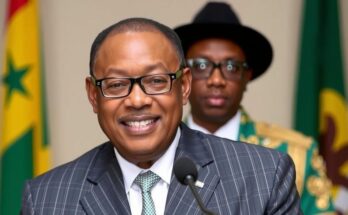Uruguay’s recent presidential elections were lackluster, marked by disinterest and uninspiring candidates. A significant concern is the growing disillusionment among youth, with high unemployment and political apathy threatening the nation’s democracy. This year’s electoral process highlights urgent socio-economic issues that require immediate attention from political leaders.
In recent memory, the presidential elections in Uruguay have generated considerable excitement; however, this year’s proceedings were markedly bland. The recent ballot resulted in no candidate achieving a majority, prompting a tedious runoff election. Historically, elections in Uruguay have been vibrant affairs, filled with political fervor and lively debates, contrasting with the current political climate’s apathy and unengaging candidates.
Underneath this facade of tranquility lies a significant concern: the burgeoning disillusionment among the youth. Despite Uruguay’s notable standing as a model of socio-economic success in South America, many young individuals express feelings of neglect. A recent study revealed that 38 percent of youth would contemplate relinquishing democracy for a government able to resolve pressing issues confronting them. This sentiment highlights an urgent need for political engagement and responsiveness.
Youth in Uruguay face a multitude of challenges, including a staggering unemployment rate of 26 percent, one of the highest in Latin America. Coupled with elevated high school dropout rates, food insecurity, and an alarming poverty rate affecting one in five children, these issues form a troubling backdrop for political participation. The consequences of the Covid-19 pandemic further exacerbated the situation, leading to increased mental health concerns, with suicide emerging as a leading cause of death among the youth.
Discontent is not restricted to the younger demographic. Older generations similarly express dissatisfaction with the current administration, citing issues such as poverty among children, rising living costs, corruption, and escalating crime rates. Although inflation has recently decelerated, net public debt has surged, alongside notable cases of financial mismanagement in President Luis Lacalle Pou’s administration.
In conversations with young voters in Montevideo prior to the elections, many expressed feelings of disconnect with the candidates. Both Yamandú Orsi from the leftist Broad Front and Álvaro Delgado from President Lacalle Pou’s National Party were perceived as out of touch, ultimately contributing to a sense of disillusionment with the electoral process. Such sentiments underscore the pressing need for political leaders to address the concerns of the youth and foster a more inclusive and responsive political environment.
Uruguay has historically been celebrated for its robust democracy and political stability, distinguishing itself within a region often marred by turbulence. The nation’s elections have been characterized by enthusiasm and active civic engagement, a legacy stemming from a collective memory of the struggle against dictatorship. However, in stark contrast to previous electoral cycles, the latest elections have unfolded with an alarming lack of excitement, raising concerns about voter engagement and the future trajectory of democracy in Uruguay, particularly among the youth population.
In conclusion, the recent elections in Uruguay reveal a troubling trend of political apathy and disillusionment among both young voters and the broader population. The stark issues facing the youth—high unemployment, educational challenges, and mental health crises—reflect a growing disconnect from traditional political processes. As the nation moves toward a runoff election, it is imperative for political leaders to acknowledge these challenges and strive for a more inclusive approach that addresses the needs and aspirations of all citizens, particularly its youth.
Original Source: www.nytimes.com




